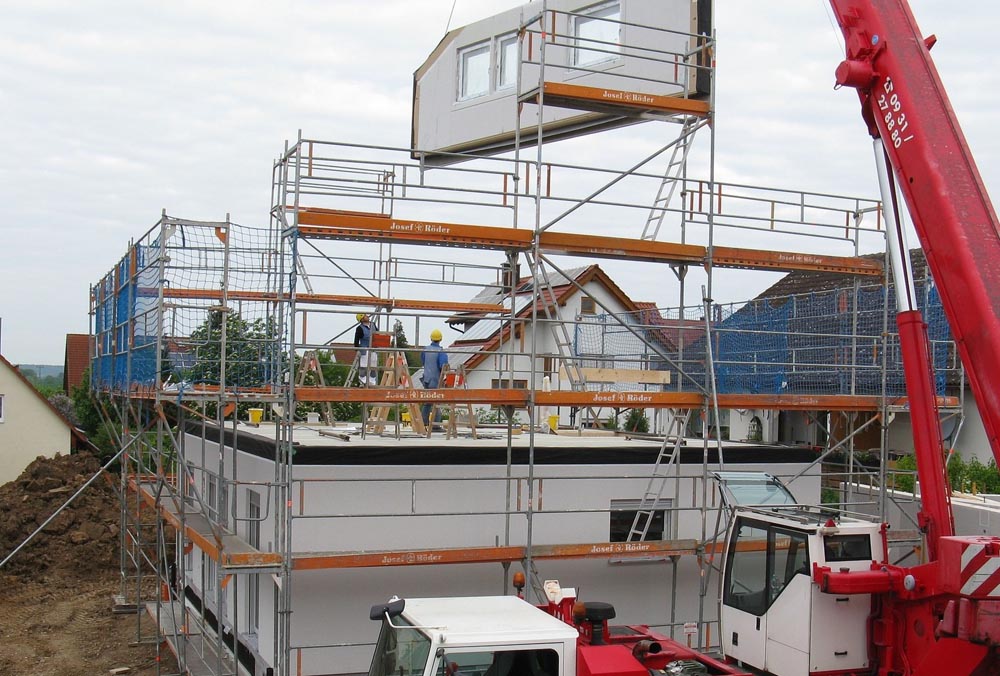
Finland’s approach to social housing is pretty unrivalled. The Nordic nation is a champion at tackling homelessness — it’s the only country in the European Union (EU) where it’s actually falling.
In contrast, research by homeless charity Shelter has revealed that between 4,000 and 5,000 people bed down on the UK’s streets each night. Nick Cowley, managing director of windows and doors manufacturer Euramax, investigates the UK homeless crisis, and how the construction industry can help provide a solution.
In 2008, Finland adopted its Housing First approach to homelessness, resulting in a 35 per cent reduction in people living without a fixed address. Traditional homelessness policies work on a staircase model, where rough sleepers must address issues such as drug addition and mental health problems and seek help from temporary accommodation, such as hostels and shelters, before moving up to permanent housing. Housing First flips the staircase model on its head, offering people housing unconditionally, providing a secure foundation to help them rebuild their lives.
In the UK, the number of households in temporary accommodation has increased by over 75 per cent since 2010, and the number of rough sleepers has almost doubled. Perhaps it’s time that the UK took a leaf out of Finland’s book and invested further into providing permanent accommodation for homeless people. With its cost-effectiveness and ability to significantly shorten construction time, without compromising building quality, modular construction provides a viable way to deliver permanent housing to help tackle homelessness.
Building benefits
Modular construction involves fabricating sections of a building, such as walls, roofs, rooms or even whole living units, away from the construction site in a manufacturing facility. The manufacturing facilities combine specialised staff and automated equipment to expertly construct individual parts of the home. The modules are then transported to the construction site and lifted into place, and joined together to form a complete building.
Building of the modules in a factory can continue through the night using automated machinery, and occur simultaneously with site preparation and foundation work. The controlled factory environment lessens weather disruption, as many outdoor construction projects are delayed by rain, which can delay electrical work, and wind, which can prevent work at height.
Automated production techniques and advanced robotics allow superior monitoring of processes, minimising mistakes. Many quality checks can be performed before leaving the factory, ensuring any faults that do occur can be resolved before the modules are bought to site. Because of these reasons, modular builds can be completed up to 50 per cent quicker than traditional construction methods, shortening waiting times for housing.
Successful results
The highly controlled space for manufacturing allows the construction project to be better planned and processed, keeping costs down through less wasted materials and time. Project expenses are also reduced by the overall shortened construction time, which lowers labour costs. The reduced price of modular construction provides a cost effective option for accommodation. Homes made using traditional construction methods typically cost at least £150,000 to build, and average UK rent prices are over £800 per month.
In addition, by using the correct materials and techniques, modular builds can be constructed with the same efficiency as traditional houses, ensuring they are economical to run. Euramax supplies PVCu windows and doors to the modular industry that are all rated A for efficiency. Our products are manufactured in our dedicated manufacturing facility located in South Yorkshire, and can be transported to pre-fabricated construction sites anywhere in the country.
Euramax’s bespoke service means we can work with our installation partners to provide a high performance solution for a range of applications, such as contained accommodation units. Our PVCu doors are reinforced with galvanized steel for added strength, providing a cost effective solution to security. All our windows and doors are easy to install and meet the specific demands of modular construction.
A modular solution
There are already projects in the UK where modular construction is helping tackle homelessness. Last year, Centrepoint, a charity dedicated to ending youth homelessness, announced its Independent Living Programme. As part of this plan, Centrepoint will work with builders to construct a number of modular build affordable homes. Centrepoint aimed to build 300 new modular homes across London and Greater Manchester by 2021.
The accommodation units will provide young people with a permanent home and affordable rent once they are ready to move on from the charity’s services. At £50,000 a unit, these modular builds provide a cost effective solution to providing independent living. Centrepoint’s programme is the first of its kind in the UK.
Finland is successfully tackling homelessness with its Housing First approach, providing permanent accommodation unconditionally. With homelessness rising in the UK, it’s time to change our own strategy and prioritise affordable housing. Modular construction is already being rolled out by Centrepoint as a promising way to tackle homelessness. Modular builds can provide quick and affordable housing — helping people move from the streets to safe accommodation.
